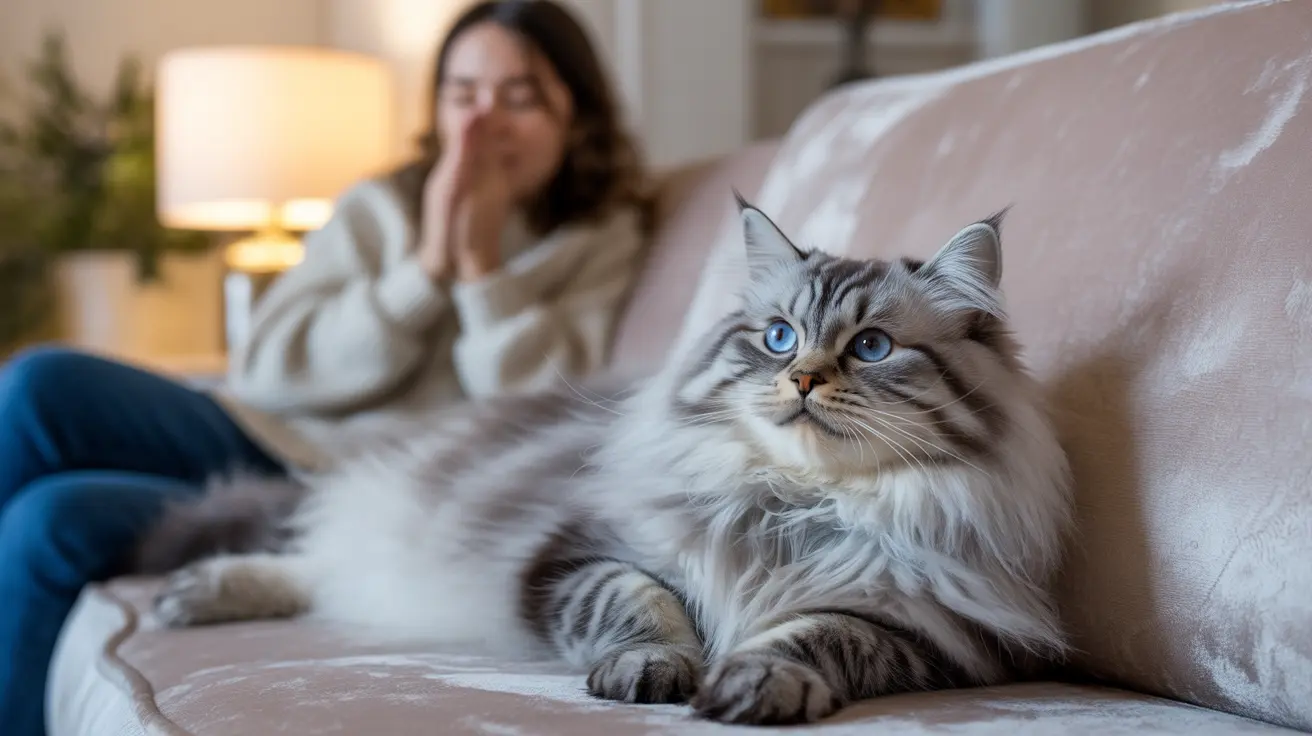Introduction
If you've ever wondered "can cats get the flu from humans," you're not alone. This concerning question often arises during flu season when pet owners worry about potentially transmitting their illness to their feline companions. While the transmission of human flu to cats, known as reverse zoonosis, is possible, it's relatively rare and typically involves specific strains of influenza.
Understanding the relationship between human flu viruses and our feline friends is crucial for proper pet care. Let's explore the scientific evidence, risk factors, and preventive measures you should know about flu transmission between humans and cats.
Understanding Human-to-Cat Flu Transmission
The possibility of cats contracting flu from humans exists, but it's important to note that such cases are uncommon. Most documented instances involve specific strains like H1N1, particularly during the 2009 pandemic. Cats typically develop their own form of respiratory illness, commonly known as "cat flu," which is caused by feline-specific viruses rather than human influenza.
How Flu Spreads to Cats
Transmission typically occurs through close contact with an infected person, particularly through respiratory droplets. When a sick person coughs or sneezes near their cat, the virus can enter through the animal's eyes, nose, or mouth. However, casual contact in the same household generally poses minimal risk.
Recognizing Flu Symptoms in Cats
If your cat has contracted a flu virus, they may exhibit several distinctive symptoms:
- Lethargy and weakness
- Fever
- Sneezing and coughing
- Runny nose or eyes
- Decreased appetite
- Difficulty breathing
These symptoms can be similar whether caused by human flu viruses or feline-specific respiratory infections. If you notice any of these signs, especially after someone in the household has had the flu, consult your veterinarian.
Prevention and Protection Measures
While the risk of transmission is low, taking precautionary steps can help protect your cat:
- Wash hands thoroughly before and after handling your pet
- Avoid close face-to-face contact when you're sick
- Keep your cat's environment clean and well-ventilated
- Maintain regular veterinary check-ups
- Consider vaccination against common feline respiratory viruses
Treatment and Care
If your cat does contract the flu, treatment typically focuses on supporting their immune system and managing symptoms. This may include:
- Ensuring proper hydration
- Maintaining good nutrition
- Providing a quiet, stress-free environment
- Following veterinary recommendations for medication
- Monitoring breathing and overall condition
Frequently Asked Questions
Can cats catch the flu from their owners who are sick with the human flu?
Yes, cats can catch certain strains of human flu, though it's relatively rare. The most documented cases involve the H1N1 strain, and transmission typically requires close contact with an infected person.
What symptoms indicate that my cat might have contracted the flu virus?
Key symptoms include lethargy, fever, sneezing, coughing, runny nose or eyes, decreased appetite, and difficulty breathing. If you notice these symptoms, especially after human flu exposure, consult your veterinarian.
How does the flu virus spread between humans and cats, and vice versa?
The virus primarily spreads through respiratory droplets from coughing or sneezing, and direct close contact. Transmission from cats back to humans is extremely rare.
What precautions should I take to protect my cat from getting the flu during flu season?
Practice good hygiene, wash hands frequently, avoid close face-to-face contact when sick, keep your cat's environment clean, and maintain regular veterinary care.
Can cats transmit the flu back to humans, and how common is this?
While technically possible, cat-to-human flu transmission is extremely rare. There have been very few documented cases, and it's not considered a significant health risk for most people.
Conclusion
While it's possible for cats to contract flu from humans, the risk is relatively low and shouldn't cause undue concern. Following basic hygiene practices and being mindful of your cat's health during flu season can help minimize any risk of transmission. If you're ever concerned about your cat's health, don't hesitate to consult with your veterinarian for professional guidance.






